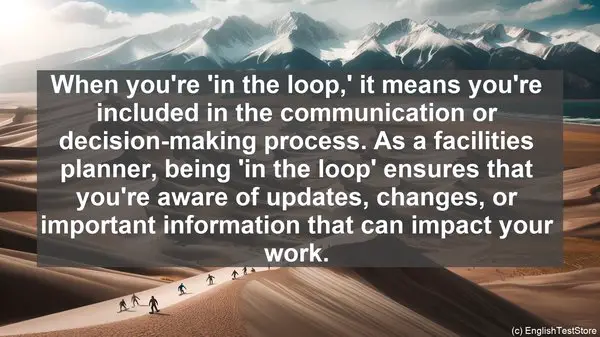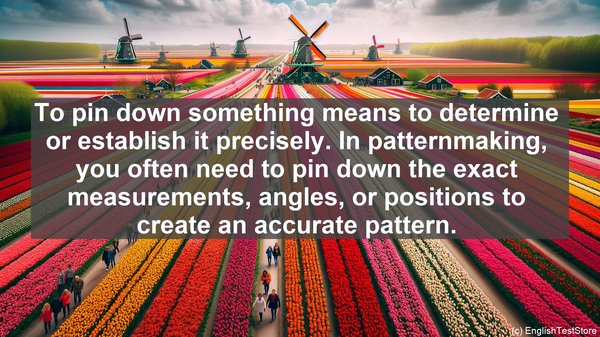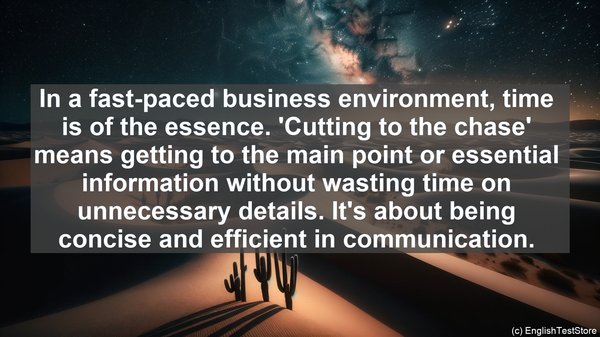1. ‘The ball is in your court’
This idiom means that it’s someone else’s turn to take action or make a decision. As a facilities planner, you’ll often find yourself in situations where you need input or approval from others. So, when you use this idiom, you’re politely reminding them that it’s their responsibility now.
2. ‘Break the ice’
Starting a conversation or meeting with new people can be challenging. This idiom means to initiate or make a beginning, usually to ease tension or create a comfortable atmosphere. As a facilities planner, you’ll often interact with different teams and stakeholders, so breaking the ice is crucial to establish rapport.

3. ‘In the pipeline’
When something is ‘in the pipeline,’ it means it’s being planned or developed and will happen in the future. As a facilities planner, you’ll constantly have projects, renovations, or upgrades in the pipeline. This idiom is a concise way to convey that something is in progress.
4. ‘Dot the i’s and cross the t’s’
Attention to detail is vital in facilities planning. This idiom means to be meticulous and thorough in completing tasks or documents. It emphasizes the importance of not overlooking even the smallest details, as they can have significant implications in your work.
5. ‘On the same page’
When everyone is ‘on the same page,’ it means they have a shared understanding or agreement about something. As a facilities planner, effective communication is key, and ensuring that all stakeholders are on the same page can prevent misunderstandings or delays.

6. ‘Put all your eggs in one basket’
This idiom advises against relying on a single option or strategy. In facilities planning, it’s essential to consider multiple alternatives and have contingency plans. ‘Putting all your eggs in one basket’ can lead to unnecessary risks or failures.
7. ‘Think outside the box’
Facilities planning often requires creative problem-solving. This idiom encourages thinking innovatively and considering unconventional approaches. It’s about breaking free from traditional or limited thinking and exploring new possibilities.
8. ‘Cutting corners’
While efficiency is crucial, ‘cutting corners’ means taking shortcuts that compromise quality or safety. As a facilities planner, it’s important to prioritize doing things properly, even if it takes more time or resources.
9. ‘In the loop’
When you’re ‘in the loop,’ it means you’re included in the communication or decision-making process. As a facilities planner, being ‘in the loop’ ensures that you’re aware of updates, changes, or important information that can impact your work.
10. ‘Bells and whistles’
This idiom refers to additional features or embellishments that are not necessary but add attractiveness or appeal. In facilities planning, it’s important to distinguish between essential requirements and ‘bells and whistles’ to ensure efficient use of resources.


















